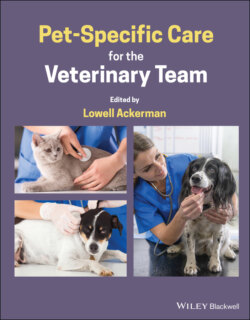Читать книгу Pet-Specific Care for the Veterinary Team - Группа авторов - Страница 17
1.1.2 Terms Defined
ОглавлениеCare Pathway: A step‐by‐step approach to the management of specific conditions in specific patient populations.
Companion Diagnostics: A method to test safety and efficacy of a drug specific to a target patient group, breed, or otherwise identified individual (biomarkers, genetic markers, etc.).
Continuum of Care: The delivery of healthcare over a period of time, such that intervention at any point on the timeline affects quality of life in the period afterwards.
Healthspan: The portion of a pet's life in which it is considered generally healthy, in contradistinction to lifespan which is the quantity of time a pet is alive.
Level of Care: The intensity, appropriateness or competence of care provided.
P4 Medicine: The clinical face of systems medicine, P4 medicine is Predictive, Preventive, Personalized, and Participatory. Its two major objectives are to quantify wellness and demystify disease.
Pet Parent: A term used to designate that the relationship between individuals and their pets is more than just ownership. Such individuals endeavor to do what is best for their pets and seek to maximize the benefits of the human–animal bond for both parties.
Spectrum of Care: The availability and accessibility of veterinary medical care regardless of the socioeconomic status of the pet owner.
Stratified Medicine: An approach to medical care designed to segment or stratify patients into groupings with similar disease profiles, attributes, or presumed response to specific therapies.
Theranostics: A combination of diagnostics and therapy in which specific targeted therapy is based on specific targeted diagnostic tests.
Toxgnostics: The identification of genetic variants that predict adverse reactions to specific drugs.
